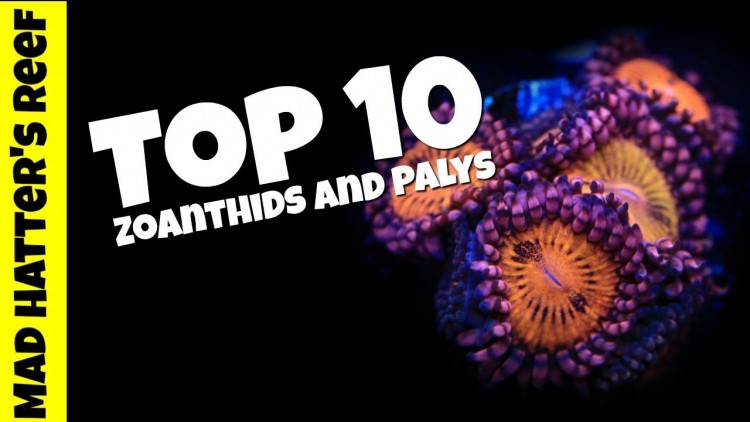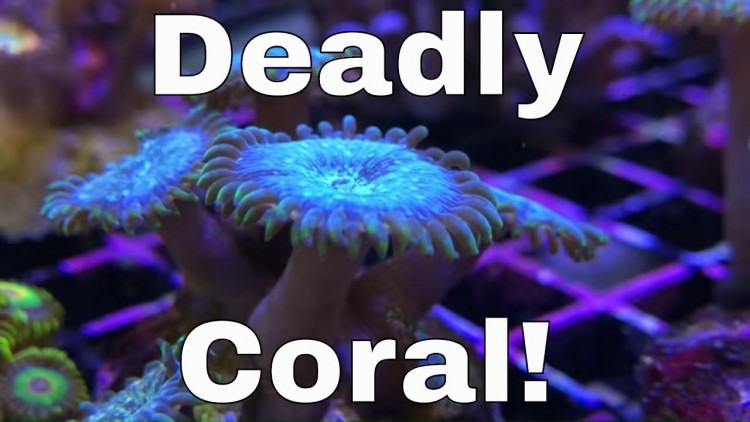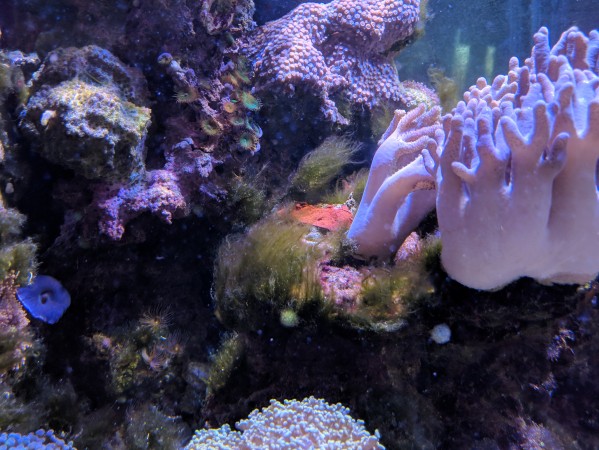- Name:
Constantine Palys
(View AKA's) - Family: Zoanthidae
- Species: Palythoa
- Scientific Name: Palythoa sp

General info about Constantine Palys
- Calcium: 380 - 430 ppm
- Alkalinity: 3.2 - 4.5 MEQ/L
- Phosphates: 0
- Magnesium: 1250 - 1300 ppm
- Strontium: 8 - 10
- Temperature: 72° - 82° F (22° - 27° C)
- Salinity / Specific Gravity: 1.023 - 1.025
Constantine Palys Diet & Nutrition
In the wild, Constantine Palys has developed a symbiotic feeding relationship with marine algae called zooxanthellae. But in captivity, you have to feed them with nanoplankton or dissolved organics.
Fragging / Propagating Constantine Palys
A mature tank is highly recommended in propagating Constantine Palys. They should be set in the middle or top part of the tank where they will receive the most amount of light.
Flow / Lighting Requirements for Constantine Palys
Constantine Palys requires strong lighting and moderate waterflow.
Parasites & Diseases that Affect Constantine Palys
While the Constantine Palys are easy to maintain, you have to be alert for filamentous algae that can overgrow and smother their polyps. They are also prone to box snail which feeds on them, so you need to remove this particular snail from the tank. You also have to look out for large crustaceans and fish like angelfish and butterflyfish that nibbles on their tentacles.
Constantine Palys Origin
Constantine Palys are abundant and can be found in the waters of the Indo-Pacific Ocean.
Caution Should be Taken with Constantine Palys
Constantine Palys are known to posses high levels of palytoxin and vibrio bacteria especially in their mucus. So, you need to wear gloves in handling them.
How to Acclimate Constantine Palys
Constantine Palys are purely marine. So, therefore, salinity must be maintained thoroughly at 1.023 to 1.025 specific gravity.
Stinging Tentacles on Constantine Palys
Since the Constantine Palys contains toxins and bateria, you have give them ample space so that they cannot sting other coral species.
Original Detail
| Name | Species | Family | Scientific Name | More Detail | Added by |
|---|---|---|---|---|---|
| Constantine Palys | Palythoa | Zoanthidae | Palythoa sp | In general, corals coming from the genus Palythoa are classified as zoanthids with colonies that are embedded hard in the substrate and is often covered by its protruding polyps. Each polyp has an oral disc or mouth that is flat in shape and surrounded by a fringe of tentacles.
For the Constantine Palys, they are predominantly colored red with white mouth. This are the water paramaters in cultivating Constantine Palys:
|
PalaciosAn |
Changed by users
| Submitted Date | Submitted By | Status | Action |
|---|---|---|---|
| 2019-01-10 09:23:58 | Tristan Paylado | Approved |







